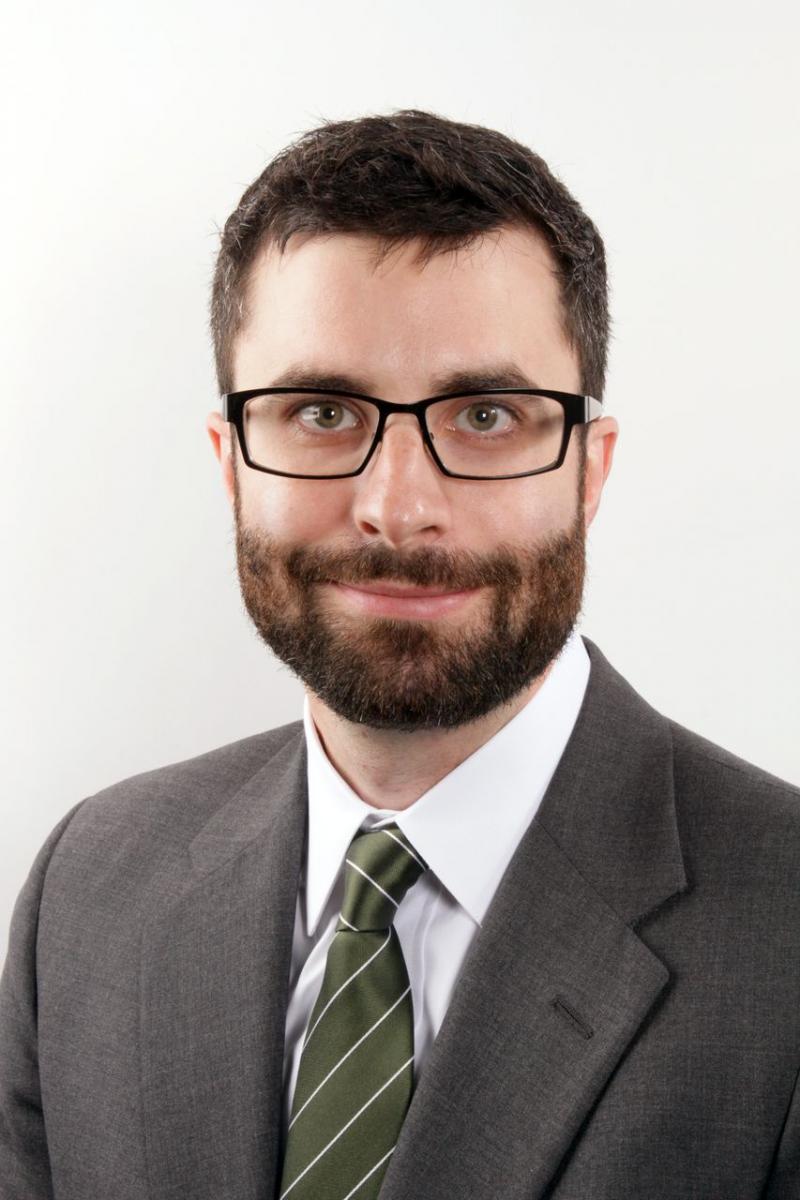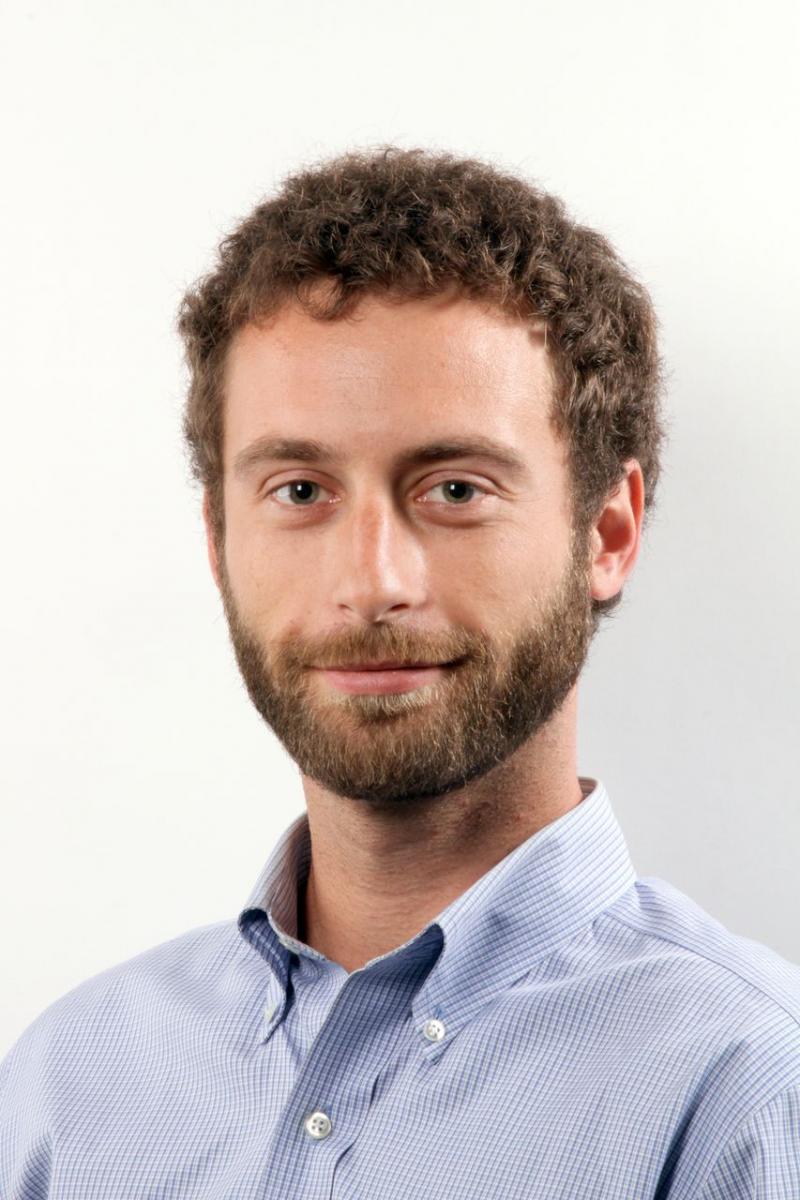EDF Climate Corps fellow | September 6, 2013
This summer, EDF Climate Corps placed 116 fellows within leading organizations to identify strategic energy management opportunities. These fellows spent their summer working on a variety of projects from energy efficiency to sustainability planning, employee engagement, demand response and energy information systems. Read below to learn more about three of our fellows, David, Jacob and Nicholas, who worked at Facebook, Shorenstein Realty Services and Bay Area Climate Collaborative to once again raise the bar on energy management best practices.

Name: David Wang
Hometown: Renton, WA
Host Organization: Facebook
School: University of Michigan, Erb Institute
Q: Why did you want to join EDF Climate Corps?
A: I wanted to explore corporate sustainability. I thought EDF Climate Corps would be a great way to do that because energy efficiency is a fundamental aspect of corporate sustainability. I was excited to join Facebook, a company that has pursued sustainability for a while and has a reputation for innovation.
Q: What are you working on this summer?
A: Most of the projects I am working on are standard energy efficiency projects involving lighting and HVAC efficiency, but I am also working on employee engagement and organizational behavior. In addition, Facebook was an early adopter of a new solar cogeneration technology, so I am also evaluating system performance to enhance our understanding how the systems work under different conditions.
Q: What is the most difficult part about tackling this project?
A: Facebook is hitting the limits to what building controls can do without actively engaging its thousands of employees. The next steps will likely require employee buy-in, which means understanding how efficiency and sustainability fit into how the company operates. That’s tough stuff.
Q: Have you found ways to overcome this?
A: Facebook is a very data driven company, so I am trying to gather as much data as I can related to energy use and then message that out. Also, I’ve found it useful to use pre-established methods of internal communication. It may seem obvious, but we use Facebook groups and events here to organize and communicate. I’ve found those successful.
Q: What is the best piece of advice you’ve received from your supervisor?
A: She made it very clear at the onset that it’s important to understand Facebook’s unique values and company culture. She helped me learn about the initiatives that Facebook has tried in the past that didn’t work and how that relates to the values and work culture here.

Name: Jacob Talbot
Hometown: I’m a native Texan.
Host Organization: Shorenstein Realty Services
School: University of Michigan
Q: What are you working on this summer?
A: Shorenstein recently hired a former EDF Climate Corps fellow, Jaxon Love, to focus on sustainability initiatives full time. I’m working with Jaxon to evaluate buildings across the Shorenstein portfolio in order to identify new opportunities for efficiency projects and to develop a system for tracking projects on an on-going basis that will aid strategic energy planning.
Q: What is the most difficult part about tackling this project?
A: The biggest challenge I’ve confronted is the diversity among buildings in the Shorenstein portfolio. Because Shorenstein is a real estate investment company, few properties remain in the portfolio indefinitely. Identifying energy efficiency projects that have both a high return over the life of the measure and a payback period that aligns with the hold strategy for that property can be tricky. Fortunately, Shorenstein has a great team of engineers to help assess potential projects and green light the ones that meet the necessary criteria.
Q: Have you identified any promising new opportunities or technologies this summer?
A: One area that I’m excited about is water heating, an oft-overlooked energy saving opportunity in office buildings. While high efficiency boilers are a big expense, there are low-cost means of improving the efficiency of the overall water heating system, such as on-demand recirculation pumps. I’m currently assessing the potential for these pumps for buildings in Shorenstein’s portfolio.
Q: What is the best piece of advice you’ve received from your supervisor?
A: When making a recommendation on energy efficiency investments to a property manager or tenant, it’s important to consider the implications of that investment from their perspective. This means framing the message in consideration of their competing priorities and the impact that recommendation will have on their day to day work.
Q: What is the mark you want to leave on the world?
A: All buildings use 75% less energy and they’re still affordable! In all seriousness, I’d like to work toward making dramatic energy reductions in the buildings sector, both in new construction and existing buildings. This is an exciting time in energy efficiency because there are more people than ever devoted to overcoming long-standing barriers to investments in efficiency. I’m hopeful that this is the generation in which we mainstream energy-efficient practices.

Name: Nicholas Kline
Hometown: San Francisco, CA
Host Organization: Bay Area Climate Collaborative
School: Yale University
Q: Why did you want to join EDF Climate Corps?
A: Climate change is the defining issue of my generation and I want to spend my life fighting it. I see clean energy and energy efficiency as a great inroad for tackling climate change and the human contribution to this problem. EDF Climate Corps reflected my values in that regard and presented a great opportunity to gain experience tackling this problem.
Q: What are you working on this summer?
A: I’m doing research on off-street parking facilities, public and private light-duty fleets and multi-unit residential buildings in the Bay Area. I’m segmenting, sizing and characterizing the markets; mapping out the regional stakeholders and decision-makers; and determining the energy, dollar and greenhouse gas savings possible with wide scale LED lighting upgrades, electric vehicle adoption and energy efficiency retrofits.
Q: What is one thing you have learned this summer?
A: I learned about the importance of rebates and other incentives in the adoption of energy efficiency technology.
Q: What is the best part of working at Bay Area Climate Collaborative?
A: In focusing on near-team, market oriented, regionally scaled clean energy solutions, the Bay Area Climate Collaborative’s mission accounts for the urgency of the problem of human greenhouse gas emissions. I’ve thoroughly enjoyed doing work that will allow certain stakeholders in the Bay Area to implement clean energy solutions that will collectively mitigate a significant amount of greenhouse gases.
Q: Do you have a favorite quote:
A: “We are like tenant farmers chopping down the fence around our house for fuel when we should be using Nature's inexhaustible sources of energy -- sun, wind and tide. ... I'd put my money on the sun and solar energy. What a source of power! I hope we don't have to wait until oil and coal run out before we tackle that.” -Thomas Edison, inventor (1847-1931)
This post is a part of our "Interviews with Tomorrow's Leaders" series. Stay tuned for more interviews with our 2013 EDF Climate Corps fellows!
About EDF Climate Corps
EDF Climate Corps (edfclimatecorps.org) taps the talents of tomorrow’s leaders to save energy, money and the environment by placing specially-trained EDF fellows in companies, cities and universities as dedicated energy problem solvers. Working with hundreds of leading organizations, EDF Climate Corps has found an average of $1 million in energy savings for each participant. For more information, visit edfclimatecorps.org. Read our blog at edfclimatecorps.org/blog. Follow us on Twitter at twitter.com/edfbiz and on Facebook at facebook.com/EDFClimateCorps.